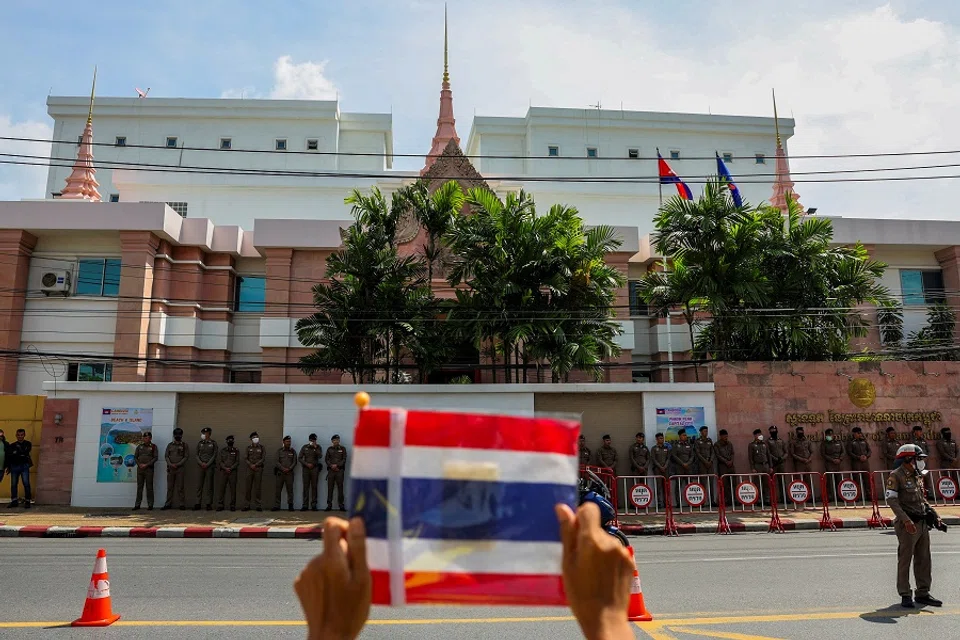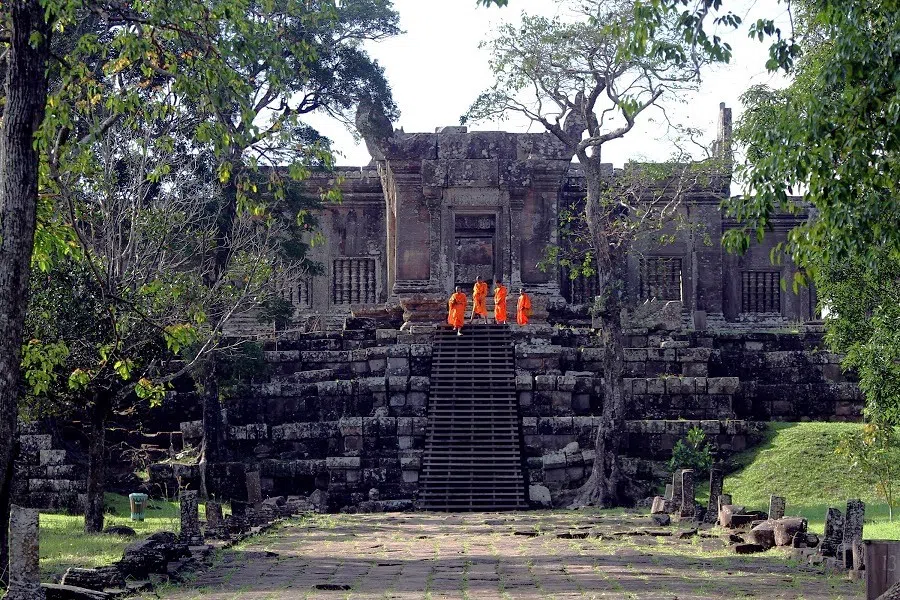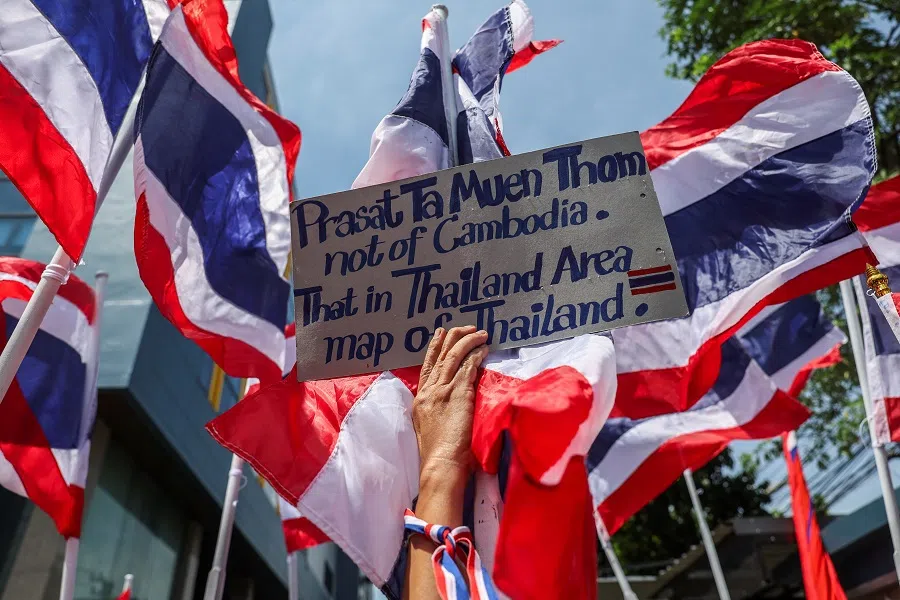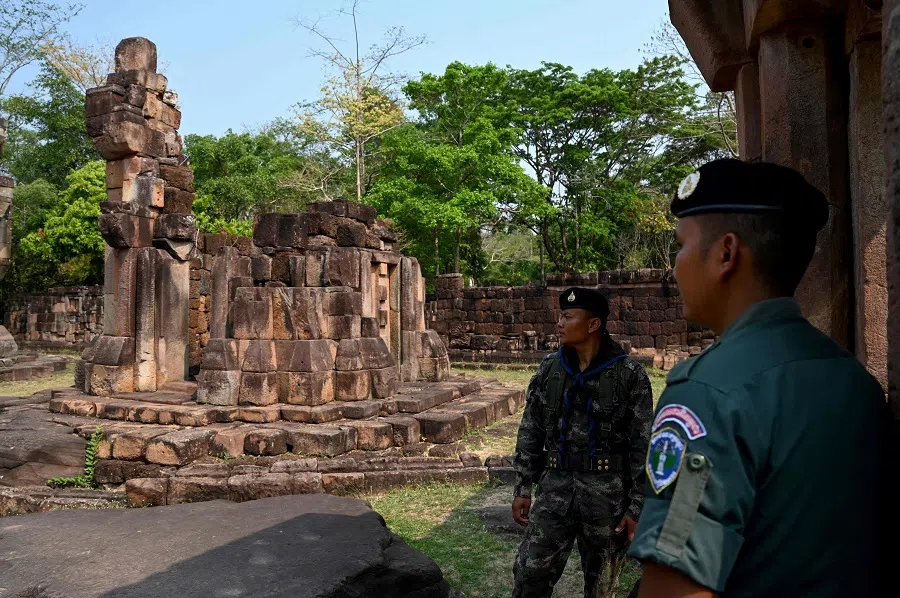China’s possible role in Cambodia-Thailand border dispute
As relations between Cambodia and Thailand remain tense following a border incident along their disputed border, Cambodian researcher Sokvy Rim weighs up the key factors and considers China as a possible mediator if the situation worsens.

On 28 May, there was an armed confrontation between Cambodia and Thai soldiers along the disputed border, leading to the death of one Cambodian soldier. The clash has renewed the two countries’ longstanding animosity and disagreements on various points along the shared border, including the Ta Moan Thom, Ta Moan Toch, Ta Krabei temples and Mom Bei (Emerald Triangle).
While reinforcing troops and heavy weapons along the border, each country has accused the other of violating its sovereignty. The possibility of further escalation died down following various talks along the border in which both sides agreed to “adjust” the number of troops along the border. However, troop adjustment is only one part of reducing the possibility of armed conflict. The disputed border remains a contentious issue between Cambodia and Thailand.
Currently, the situation is still tense with Cambodia’s Ministry of Interior urging Cambodian citizens not to cross the border unless necessary. Both countries have reduced the permitted duration of stay for each other’s citizens from 60 days to seven days. If the two sides fail to solve the issue via negotiations, bilateral relations could be severely affected.
... there seems to be a divide within Thai’s domestic politics, with the military and conservative elites using anti-Cambodia sentiment to gain popular support, particularly to justify military interference in Thai’s domestic politics...
Key sticking points could cause dangerous rifts
Firstly, both countries depend on different maps to solve the border conflict. While Cambodia refers to the map drawn during French colonialism in 1907, Thailand demands that the borderline should be demarcated along the natural watershed line between the two countries. This has resulted in various border disputes between the two countries, Preah Vihear Temple being one of them.
Not only that, there seems to be a divide within Thai’s domestic politics, with the military and conservative elites using anti-Cambodia sentiment to gain popular support, particularly to justify military interference in Thai’s domestic politics as per 2006 and 2014. With nationalism running high in Thailand, the current Thai prime minister, Paetongtarn Shinawatra, might not be able to stay in power for too long if she cannot lay claim on the disputed border, which Thai nationalists perceive as Thai territory.

The opposition could use that to accuse her of colluding with Cambodian Prime Minister Hun Manet, as her father, former Thai Prime Minister Thaksin Shinawatra, has close relations with Hun Manet’s father, Cambodia’s Senate President and former Prime Minister Hun Sen. In history, Thaksin and his camp had been accused of selling the motherland in exchange for his business interests in Cambodia, in relation to a 4.6-square-kilometre area surrounding Preah Vihear, when Cambodia decided to register Preah Vihear as a world heritage site. The same rhetoric is being used again by Thai nationalists that the current prime minister is “selling Thai sovereignty”.
... Thailand’s reluctance in solving the issue via international institutions could make it even harder to solve the border dispute.
The legal route: Cambodia in favour, Thailand not
In addition, Thailand’s reluctance in solving the issue via international institutions could make it even harder to solve the border dispute. In the past, both countries have relied on international institutions to manage their border disputes. For instance, in 2011, strong nationalism and the complexity of domestic politics of both countries turned the border dispute into a stalemate and resulted in several skirmishes between the two, leading to the death of over 20 soldiers and civilians from both sides and tens of thousands of people being displaced. Cambodia requested the ICJ to interpret the 1962 judgment for which the court issued provisional measures and a verdict in 2013.
Cambodia is keen to once again refer the matter to the ICJ while Thailand prefers bilateral negotiation. Thailand’s reluctance to bring the case to the ICJ could be attributed to its military superiority and its economic prowess over Cambodia. Thailand’s defence budget reached US$5.5 billion in 2024, Cambodia’s defence budget stood at US$700 million. This enables Thailand to strengthen its armed forces and procure modern military weapons while most of Cambodia’s weapons still rely most on weapons from the Cold war.
In addition, Thailand also has economic power over Cambodia. While the closure of the border could hurt both equally, Cambodia also has many migrant workers in Thailand. As of 2024, Winrock International, a non-profit organisation, revealed that there are around 1.5 million Cambodian migrant workers in Thailand. Ultimately, Thailand’s reluctance to bring the case to the ICJ is mainly due to Cambodia having a historical footprint in the disputed area as well as Cambodia’s previous wins against Thailand at the ICJ in 1962 and 2013.

Looking at the current situation, if the border dispute cannot be resolved, rising nationalism in the two countries could pit one against the other. Even worse, it could lead to armed confrontations and worsen the diplomatic relations between the two. Recently, both countries held a two-day meeting, however, Bangkok reported that the meeting did not reach any conclusion. On 15 June, Cambodia announced that it has decided to take the case to the ICJ.
However, if the conflict escalates, which external party is appropriate and is willing to mediate the conflict? In the previous border dispute, Indonesia, in its capacity as ASEAN chair, was prepared to help by sending observers but Thailand had some objections. The efforts were not very successful mainly because Indonesia lacked economic, political, and diplomatic influence over Phnom Penh and Bangkok.
By helping to mediate the conflict, China could further strengthen its footprint and influence in the region.
China as mediator?
China appears to be a suitable actor who has the willingness as well as leverage to be a mediator. China has maintained close political and strategic relations with both Cambodia and Thailand. Cambodia has benefited from China’s infrastructure development and has annually conducted joint military exercises with China since 2016. A similar observation can be made in Thailand’s relations with China. China could be said to be replacing the US as Thailand’s security partner. The size of Thailand-China military exercise is no smaller than Cambodia-China’s Golden Dragon exercise. Thailand also procured various modern heavy weapons from China, including the KS-1C medium-range surface-to-air missiles system which Cambodia also received in 2023.
Since 2018, China has offered to mediate various conflicts including that between Saudi Arabia and Iran and the Israel-Palestine conflict. Recently China also reemphasised its wish to mediate between Russia and Ukraine. China’s seriousness in playing the role as mediator can also be seen via the recent establishment of the International Organization for Mediations (IOMed), a global mediation body based in Hong Kong that aims to solve international disputes.

China’s interest in mediation could be extended to the Cambodia-Thailand dispute. China may have even more reason to do so in this case given that the Southeast Asia region holds strategic significance for China.
During the heightened trade war between the US and China, Chinese President Xi Jinping toured three Southeast Asian countries including Vietnam, Malaysia and Cambodia. While signing various agreements and offering infrastructure support to countries in the region worth billions of billion dollars, China tried to solidify its partnership with countries in the region against hegemony and protectionism. This signifies the significance of the region to China. By helping to mediate the conflict, China could further strengthen its footprint and influence in the region.
That said, China’s role in mediating the conflict is limited to trying to prevent the conflict from being escalated into armed confrontation. As the issue involves nationalism from both countries, any assistance from China in terms of drawing the boundary will not be favoured by the citizens from Cambodia and Thailand. And in the final analysis, to solve the border dispute, both nations would need to find mechanisms which are legally binding and acceptable by both nations.





